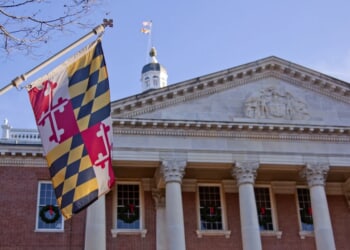The Government is showing increasing signs of schizophrenia. Lisa Nandy, the Culture Secretary, is bringing in a new Quango to meddle in football – with onerous regulations that threaten to put smaller clubs out of business. Wes Streeting, the Health Secretary, promises to not only to abolish NHS England but many other Quangos. Rachel Reeves, the Chancellor of the Exchequer, imposes more costs on business while making speeches on the need to lift such burdens. Dominic Lawson has offered a good example of the contradictions in the Government’s approach in wishing for greater “alignment” with the EU, while demanding the scrapping of red tape that delays new homes being built:
“If Starmer had a consistent approach, to “stop” this sort of block he would use the freedom we have (since Brexit) to scrap the regulations deriving from the EU’s habitats directive. It is those that created the now infamous £120 million HS2 “bat tunnel”. But the PM will not remove those regulations because the other of his heads is wedded to the principle of greater harmony with the EU’s regulatory acquis as part of his proposed “improved Brexit deal” (yet to be arranged).”
By contrast, Kemi Badenoch is seeking to develop a coherent alternative. This is being done at a pace some find frustratingly slow. But there are understandable reasons for her refusing to be rushed. There is the wish to maintain party unity by allowing time for her colleagues to have their say. Allowing detailed work meets her imperative of “seriousness.” But also, had we offered early policy announcements very soon after the General Election last year, would the voters have been ready to listen? Might they not have felt that “a period of silence would be welcome” after our own muddled record of having “talked right but governed left”?
In any event, firm progress is now underway. Yesterday, Badenoch launched the “policy renewal programme” at an event in King’s Cross. She also announced that the Conservatives were abandoning the policy of Net Zero by 2050. Her focus is that whether or not such an aim might be regarded as desirable, it is “impossible” to achieve as the cost would be prohibitive. When, in the ultimate act of virtue signalling, the target was set in law in 2019, she was a lonely voice of scepticism. Where was the plan to achieve it? Where was the money to pay for it?
Critics counter that technological change could still bring about a breakthrough. Maybe. Matt Ridley suggests there a 50-50 chance of harnessing fusion power in the coming decades adding:
“The environmental footprint would be negligible: no carbon dioxide emissions, no waste, no pollution, very few materials and a pocket-handkerchief of land. We could retire the rest of the energy industry altogether – oil rigs, coal mines, wind turbines, solar farms, hydro dams and all – and set about raising everybody’s standard of living indefinitely, while telling Greta Thunberg to cheer up.”
But Ridley does not think it will happen by 2050 and that, rather than justfying Net Zero targets, such potential makes them all the more absurd as “those countries that rushed to net zero by 2050, like us, using immensely expensive, resource-hungry, land-hungry renewable energy, will look foolish if fusion comes along just after.”
In the absence of such a breakthrough, the costs make Net Zero a fantasy. I investigated one small aspect of it – the cost to local authorities of decarbonising their housing stock as they are supposedly required to do. Let us consider Ed Miliband’s council, Doncaster. They estimate the total cost at £608 million. Just for Doncaster. But they had no schedule for carrying out the work. Keir Starmer’s council, Camden, reckons it would cost £700 million but has only scheduled £7 million a year. Lisa Nandy’s council, Wigan, put the cost at £866 million and has scheduled £1 million a year. David Lammy’s council, Haringey, has a total of £401 million with an annual budget of £3.5 million. These people aren’t even pretending it’s going to happen.
Of course, the costs of Net Zero are not just via higher taxes to pay for it; they will hit homes and businesses in regulatory requirements and higher energy bills. It doesn’t just come to billions but trillions. Even with Miliband’s zealotry, it is not plausible. The danger is that the failed attempt will be ruinously expensive.
Just suppose we did reach the target. The fantasy continues. The rest of the world still would not join us. Even if it, did some scientists argue that solar activity rather than CO2 is the dominant factor in climate change. Climate alarmism is very effectively debunked in Martin Durkin’s Climate: The Movie. It concludes that global warming is real – though it has been exaggerated, includes advantages as well as disadvantages, and certainly does not mean the end of the world.
Badenoch announced that the energy policy review would be led by Claire Coutinho, the Shadow Energy Secretary, supported by Andrew Bowie, the Shadow Scottish Secretary and Lord Offord. It will consider:
“How we can deliver cheap and clean energy, without bankrupting businesses, without eye-watering bills for households, without dependencies on hostile or unstable countries.
“Labour may not be interested in these questions – but we are. We are interested because, as Conservatives, we want to protect our environment, we want to secure our energy and deliver a better world for our children.
“Someone has to save these noble objectives from the zealots who have hijacked this agenda. The best way to deliver clean energy and a better environment is with the market. Not state diktat. Not pretend statistics from vested interests or rent seekers who want to keep this fiction going for as long as possible. Telling the truth on net zero and energy is just the start of actually ensuring we leave an inheritance for the next generation.”
There is still plenty to consider. Should the Net Zero objective be ditched altogether or merely postponed? Can we change the planning system to build new nuclear power stations faster and at a profit? Can the scaremongering over shale be overcome?
More policy reviews are to come. Badenoch included “getting people back to work”, “fixing healthcare”, “repairing the mess Labour are making night now in education”, “improving productivity” and “controlling immigration and dealing with the lawfare that stops elected officials from making democratic decisions.”
Energy is a brave one to start with though. Will telling some hard truths about Net Zero be popular? The polling suggests Net Zero is popular. Perhaps that’s in the motherhood and apple pie category. When the costs are understood then the results could be rather different – especially as the challenges become more apparent over the next four years. Leading rather than following public opinion is a good place for Badenoch to be in. The lazy consensus has gone.
So abandoning Net Zero is the right decision. But it should be balanced by adopting genuine green policies. Reducing CO2 is not always the same as having cleaner air. The two objectives can be opposite – as we saw when the EU and Gordon Brown brought in regulations to boost diesel engines, on the grounds that diesel has lower CO2 than petrol. Farmers do not only feed us but are also custodians of the countryside – they will often tell you how rules imposed by such bodies as the Environment Agency are counter-productive. We should certainly have policies that safeguard our green and pleasant land. But there is no reason that it should not be prosperous too.






![Trump's Admin Guts Another ‘Rogue Government Agency with Zero Accountability’ [WATCH]](https://www.right2024.com/wp-content/uploads/2025/03/Trumps-Admin-Guts-Another-‘Rogue-Government-Agency-with-Zero-Accountability-350x250.jpg)

![‘We All Owe Him (Elon) a Huge Debt of Gratitude’ [WATCH]](https://www.right2024.com/wp-content/uploads/2025/03/‘We-All-Owe-Him-Elon-a-Huge-Debt-of-Gratitude-350x250.jpg)








